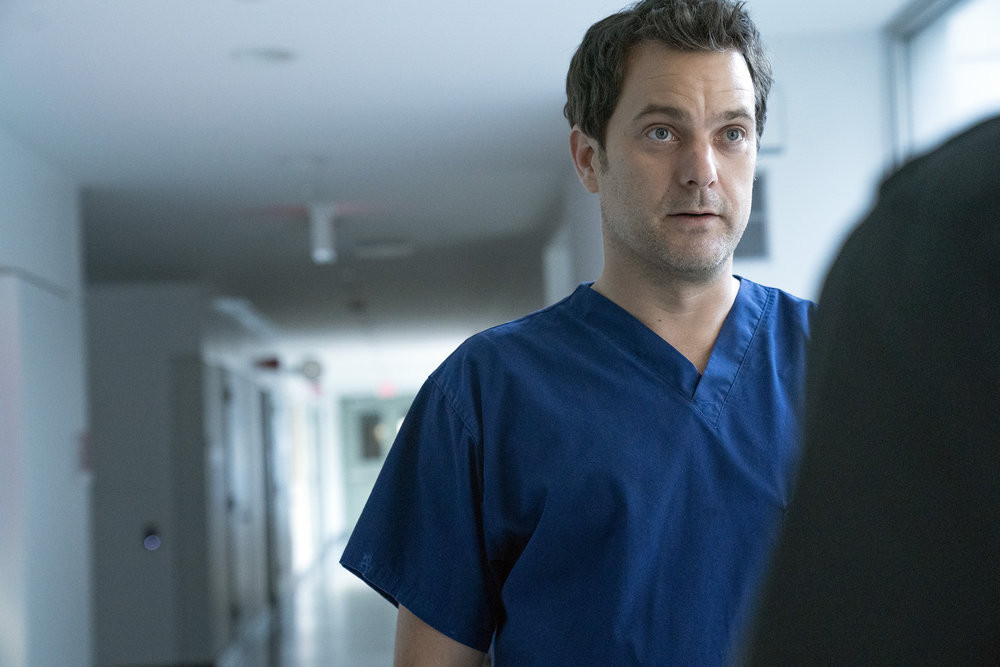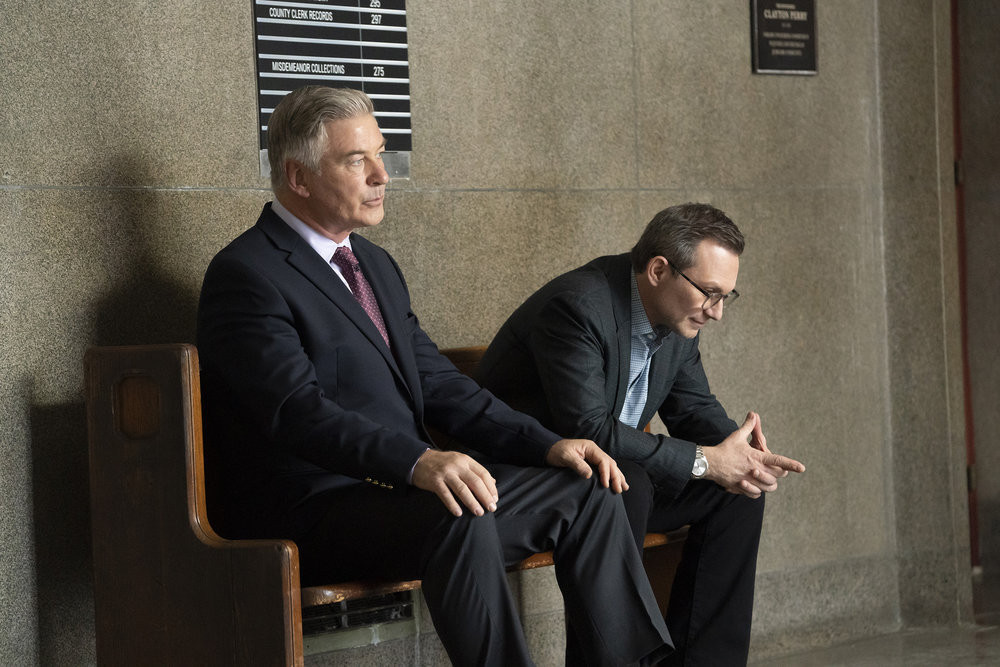The chilling narrative of Dr. Death, a Peacock drama series inspired by the gripping 2018 Wondery true-crime podcast, unveils a horrifying reality within the medical system. At its core is Christopher Duntsch, a surgeon who weaponized his scalpel, leaving a trail of devastation through the lives of his patients, while a seemingly complacent medical establishment allowed his actions to persist. Released on July 15th, Dr. Death plunges viewers into the unsettling world of this Texas surgeon, whose real-life counterpart was sentenced to life imprisonment in 2017. His conviction stemmed from the appalling harm inflicted upon nearly 40 patients between 2011 and 2013, leaving them maimed or even dead under his operating hand.
This series, a dramatized adaptation of the acclaimed podcast, features Joshua Jackson portraying the charismatic yet dangerously incompetent Duntsch. Adding depth to the narrative, Alec Baldwin and Christian Slater embody two courageous doctors who embark on a relentless quest to halt Duntsch’s escalating reign of medical terror. The series, mirroring the podcast’s meticulous documentation, reveals the agonizingly slow process of stopping Duntsch as he navigated through different hospitals, leaving a wake of injured patients in his path.
The central question that Dr. Death relentlessly probes is: how could a medical professional perpetrate such atrocities and evade accountability for so long? Out of the 37 patients Duntsch operated on in Dallas over a mere two-year span, a staggering 33 suffered injury or harm. The spectrum of damage ranged from paralysis and chronic nerve pain to fatal outcomes. Two patients tragically died – one from severe blood loss post-surgery and another from a stroke induced by a severed vertebral artery. These catastrophic injuries, as a surgeon pointed out to D Magazine in a 2016 exposé that served as the bedrock for the Dr. Death podcast, should have been classified as “never events”—errors so egregious they should simply never occur in a surgical setting.
Dr. Death meticulously dissects the systemic failures that allowed Duntsch’s impunity. Each episode employs a non-linear timeline, juxtaposing Duntsch’s early life as a young man, friend, and medical student with his later persona as a surgeon, partner, and father. A pivotal dialogue in the series premiere encapsulates the pervasive bewilderment surrounding Duntsch’s surgical conduct: “It was like he knew what he was supposed to do … and he did the exact opposite.”
To fully comprehend the magnitude of this medical nightmare, it’s crucial to delve into the specifics of Duntsch’s actions, the systemic loopholes he exploited, and the arduous journey to finally bring him to justice.
The Making of a “Confident” Deceiver
 Joshua Jackson in 'Dr. Death'Barbara Nitke—Peacock
Joshua Jackson in 'Dr. Death'Barbara Nitke—Peacock
Christopher Duntsch masterfully cultivated an image of a dedicated, skilled, and compassionate medical professional. Born to a physical therapist and a teacher, Duntsch was recognized from his early aspirations as someone who relentlessly pursued his goals, sometimes to a detrimental extent. Driven by the ambition to play Division I college football, he immersed himself in rigorous training during high school. Although he secured spots on college teams in Mississippi and Colorado, former teammates recall his struggles to keep pace during practices, yet he persistently implored coaches for continued opportunities. As a teammate revealed to ProPublica in 2018, “I gathered very quickly that everything that he had accomplished in sports had come with the sweat equity. When people said, ‘You weren’t going to be good enough,’ he outworked that and he made it happen.”
This unwavering, albeit potentially misguided, determination became a defining characteristic as Duntsch shifted his ambitions from the football field to the operating room. He set his sights on becoming a neurosurgeon, undeterred by any perceived limitations in skill or adequate training. Initially, Duntsch seemed to possess the requisite credentials. He enrolled in a prestigious M.D./Ph.D program at the University of Tennessee at Memphis College of Medicine, dedicating substantial time to cancer and stem cell research. He even co-founded Discgenics, a biopharmaceutical company focused on regenerative cell-based pain therapies, enlisting two of his surgical mentors as investors. (His association with the company later dissolved due to financial discrepancies).
Superficially, Duntsch’s trajectory appeared promising. However, depositions from his peers during the 2006-2008 period unveil cracks in his carefully constructed facade. One woman recounted an instance where Duntsch consumed LSD and cocaine throughout an entire night, proceeding directly to his hospital shift the following morning. As detailed in D Magazine, the woman stated in her deposition, “After you’ve spent a night using cocaine, most people become paranoid and want to stay in the house. They don’t want to go participate in any extraneous activities, and he was totally fine going to work.”
Duntsch’s substance abuse issues reached the University of Tennessee’s attention through an anonymous complaint alleging drug use before work. Reports from the podcast series and ProPublica indicate that while the university mandated a drug test, Duntsch evaded it. Subsequently, he was referred to a program for impaired physicians but remarkably was still permitted to complete his surgical training. The thoroughness of this training, however, remained questionable. Years later, a Dallas district attorney’s office investigation of hospital records revealed a shocking disparity: while a typical neurosurgery resident performs approximately 1,000 operations during training, Duntsch had completed fewer than 100. This glaring deficiency in practical experience would soon manifest in devastating ways.
A Pattern of Surgical Devastation
 Hubert Point-Du Jour in 'Dr. Death'Barbara Nitke—Peacock
Hubert Point-Du Jour in 'Dr. Death'Barbara Nitke—Peacock
On paper, Christopher Duntsch presented as an ideal candidate for any hospital system upon completing his residency. His extensive research in stem cell applications, coupled with glowing recommendations from his supervisors, painted a picture of a rising medical star. In 2011, Duntsch established himself in the Dallas area, joining the Minimally Invasive Spine Institute in Plano and securing operating privileges at Baylor Regional Medical Center (Baylor-Plano). It was at Baylor-Plano that concerns about Duntsch’s competence rapidly escalated among his colleagues. His arrogance was quickly overshadowed by the alarming realization that he posed a tangible threat to patient safety, as surgical complications mounted. Dr. Randall Kirby, a former coworker (portrayed by Christian Slater in the Peacock series), witnessed firsthand Duntsch’s surgical ineptitude. Kirby recounted observing Duntsch mishandle a routine disk removal procedure, opting for an inappropriate instrument instead of a scalpel, resulting in further patient harm. The patient in question continues to suffer from chronic pain and relies on a cane for mobility.
This incident was merely one instance in a series of alarming cases at Baylor-Plano. Numerous patients who entrusted their care to Duntsch experienced similar tragic outcomes: entering the operating room with the hope of alleviating suffering, only to awaken to a far worse reality.
Following further accusations of pre-surgery drug abuse, Duntsch was relegated to less complex surgical procedures at Baylor-Plano. Tragically, even in these supposedly minor surgeries, disaster struck. During a procedure to address a woman’s compressed nerve, Duntsch severed a critical blood vessel in her spinal cord, leading to her death from blood loss. The subsequent events illuminate the systemic failures that enabled Duntsch to continue practicing surgery in Texas, despite the accumulating evidence of his incompetence and the devastating consequences for his patients.
Baylor-Plano initiated an internal investigation into Duntsch’s cases, concluding that his termination was necessary. However, in a critical loophole, Duntsch was not formally fired; ProPublica reported that he voluntarily resigned in April 2012. This voluntary resignation, as meticulously detailed in the podcast, had profound repercussions. It meant Baylor-Plano was not legally obligated to report Duntsch’s actions to the National Practitioner Data Bank, a crucial resource for medical institutions to track doctors with histories of disciplinary actions, license revocations, or malpractice settlements. Duntsch’s record remained untarnished in both the data bank and the Texas Medical Board’s records, effectively erasing the red flags and allowing him to seek employment elsewhere without scrutiny.
Duntsch swiftly transitioned to Dallas Medical Center, where administrators permitted him to commence surgeries while his reference checks were still pending—a decision that would prove catastrophic. In July, he operated on a patient who suffered massive blood loss and lost consciousness post-surgery, ultimately passing away after being transferred to another hospital. Simultaneously, Duntsch was operating on another woman, where operating room staff observed his questionable surgical techniques, expressing uncertainty about “whether he was putting hardware … in the right places and noticed he kept drilling and removing screws.” This patient awoke to debilitating pain and paralysis.
The Walls Close In
 Alec Baldwin and Christian Slater in 'Dr. Death'Barbara Nitke—Peacock
Alec Baldwin and Christian Slater in 'Dr. Death'Barbara Nitke—Peacock
The tide began to turn as the Texas Medical Board started receiving formal complaints about Duntsch following the disastrous surgeries at Dallas Medical Center. Doctors, including Dr. Kirby and Dr. Robert Henderson (portrayed by Alec Baldwin), a spine surgeon who was frequently called upon to rectify Duntsch’s surgical errors, filed reports and tirelessly advocated to stop him. For a period, the complaints seemed to subside, leading to a false sense of progress. However, in late 2012, Dr. Kirby was summoned to assist another patient who had suffered severe injuries—severed vocal cords and a cut artery—during a neck surgery performed by Duntsch at yet another medical facility.
In 2013, the situation reached a critical point. Despite his growing notoriety within the Texas medical community as a surgeon to be avoided, and despite reports to the data bank and a Texas Medical Board investigation, Duntsch continued to find employment. University General Hospital, now closed, became his final place of practice. Here, he committed another egregious surgical error, mistaking a patient’s neck muscle for a tumor. Dr. Kirby characterized this operation as “an attempted murder.” Frustrated by the slow pace of the state’s investigation, both Kirby and Henderson intensified their efforts to permanently revoke Duntsch’s medical license. In June 2013, Duntsch’s license was initially suspended, followed by a full revocation in December of the same year.
Following the license revocation, Duntsch’s life spiraled into chaos. As portrayed in the series, he exhibited increasingly erratic behavior, including excessive drinking and shoplifting. Meanwhile, prosecutors collaborated with Kirby and Henderson to build a case against Duntsch, a legal challenge given the unprecedented nature of prosecuting a surgeon for malpractice in Texas. Ultimately, Duntsch was indicted on five counts of aggravated assault and one count of causing harm to an elderly person.
The prosecution meticulously constructed their case by presenting testimonies from numerous former patients, detailing the devastating impact of Duntsch’s surgical actions. A defense attorney acknowledged the powerful impact of this patient testimony to ProPublica: “You had people in walkers. You had people on crutches. You had people that could barely move. You had people that had lost loved ones.” However, perhaps the most damning evidence came from Kimberly Morgan, Duntsch’s former assistant and ex-girlfriend. She presented a 2011 email from Duntsch that chillingly revealed his malevolent intentions: “Unfortunately, you cannot understand that I am building an empire and I am so far outside the box that the Earth is small and the sun is bright. I am ready to leave the love and kindness and goodness and patience that I mix with everything else that I am and become a cold blooded killer.” The jury found Duntsch guilty, and he was sentenced to life in prison.
The extensive coverage of Duntsch’s case, the podcast series, and the Peacock drama all underscore a critical point: this is not merely the story of a single “bad apple,” but rather a symptom of profound systemic failures within the medical system. This theme of systemic breakdown resonates with other true crime narratives. In Duntsch’s case, his continued employability was partly fueled by the financial incentives hospitals have to employ neurosurgeons, who generate significant revenue. This financial pressure, combined with inadequate oversight and the slow response of the Texas Medical Board, created an environment where Duntsch was essentially allowed to inflict harm unchecked until he was finally stopped. The “Doctor Death Story” serves as a stark reminder of the vulnerabilities within the healthcare system and the critical need for robust patient safety measures and accountability.
